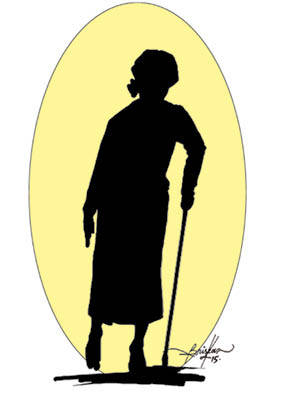Stroke: Why assessment for risks, warning signs are important — Expert
Stroke is one of the leading causes of long-term disability and death. Some experts estimate that more Nigerians die from stroke than malaria and HIV combined. Medical experts have said that the disease is a common cause of death and disability in adults. They say that over two-thirds of survivors must live with chronic conditions, […]

Stroke is one of the leading causes of long-term disability and death. Some experts estimate that more Nigerians die from stroke than malaria and HIV combined.
Medical experts have said that the disease is a common cause of death and disability in adults. They say that over two-thirds of survivors must live with chronic conditions, such as paralysis and reduced physical activity, speech problems, and the inability to understand speech.
It can leave victims crippled with permanent paralysis, speaking and communication loss and long-term health dependence ranging from impaired motor control and urinary incontinence to depression and memory loss. It most often ultimately results in early death in the country.
These conditions can impact an individual’s ability to return to work, return to school, and become a functioning member of society once again.
The medical experts said for survivors and their families, the long-term costs, both financial and in terms of quality of life, are often overwhelming.
Stroke is said to occur when the blood supply to the brain is interrupted by factors such as high blood pressure or damage to blood vessels.
Dr. Olugbenga Akande, Lead Partner of the International Stroke Protection Centre, Lekki, Lagos, said stroke has remained a silent killer because people do not notice the underlying risks and symptoms until it is too late.
He said while stroke could be prevented with early detection, and recognizing the warning signs, “up to 80% of strokes are preventable. Strokes can occur at any age and at any time, even in people with a low to medium risk of having it. You could reduce your risk with early assessment, appropriate preventative treatment, screening and lifestyle changes,” he said.
He said the signs of stroke include: loss of strength, numbness, loss of vision, speech difficulty, loss of balance, transient spells including vertigo, dizziness, swallowing difficulties, acute confusion, and memory disturbances, amongst others.
According to the expert, up to 50% of people who have a stroke in Nigeria are likely to die within 30 days. “Those who survive may have major life changing disability and reduced life expectancy. The financial impact on stroke sufferers and their families includes both direct and indirect costs,” he added.
The medical expert said the concern about the burden of stroke in the country made the centre to devise effective detection, management and treatment to tackle it.
He said it was also why the centre was offering comprehensive annual stroke preventative assessment and early warning treatments. “These include full neurological and brain screening tests, extensive vascular screening and risk factor review and cognitive enhancement treatment solutions.”
He said the centre is a joint venture with the United Kingdom and United States of America trained specialists, Dr Toyin Ajala and Dr Babafemi Adenuga, adding that it provides personalised assessment to determine one’s individual risk of stroke.
“Our experts use advanced genetic tests and tailored comprehensive assessments to uniquely identify if a person has a risk of having a stroke in the next year, five and 10 years. We work with you to develop strategies to manage and effectively reduce your chances of risk. We use the latest technology to help manage and effectively reduce this risk.
“Our assessment will also provide you with an indication of your risk of heart attack, diabetes and dementia. This should be everybody’s number one priority as one does not have to be a victim before seeking medical solution,” Dr. Akande added.
